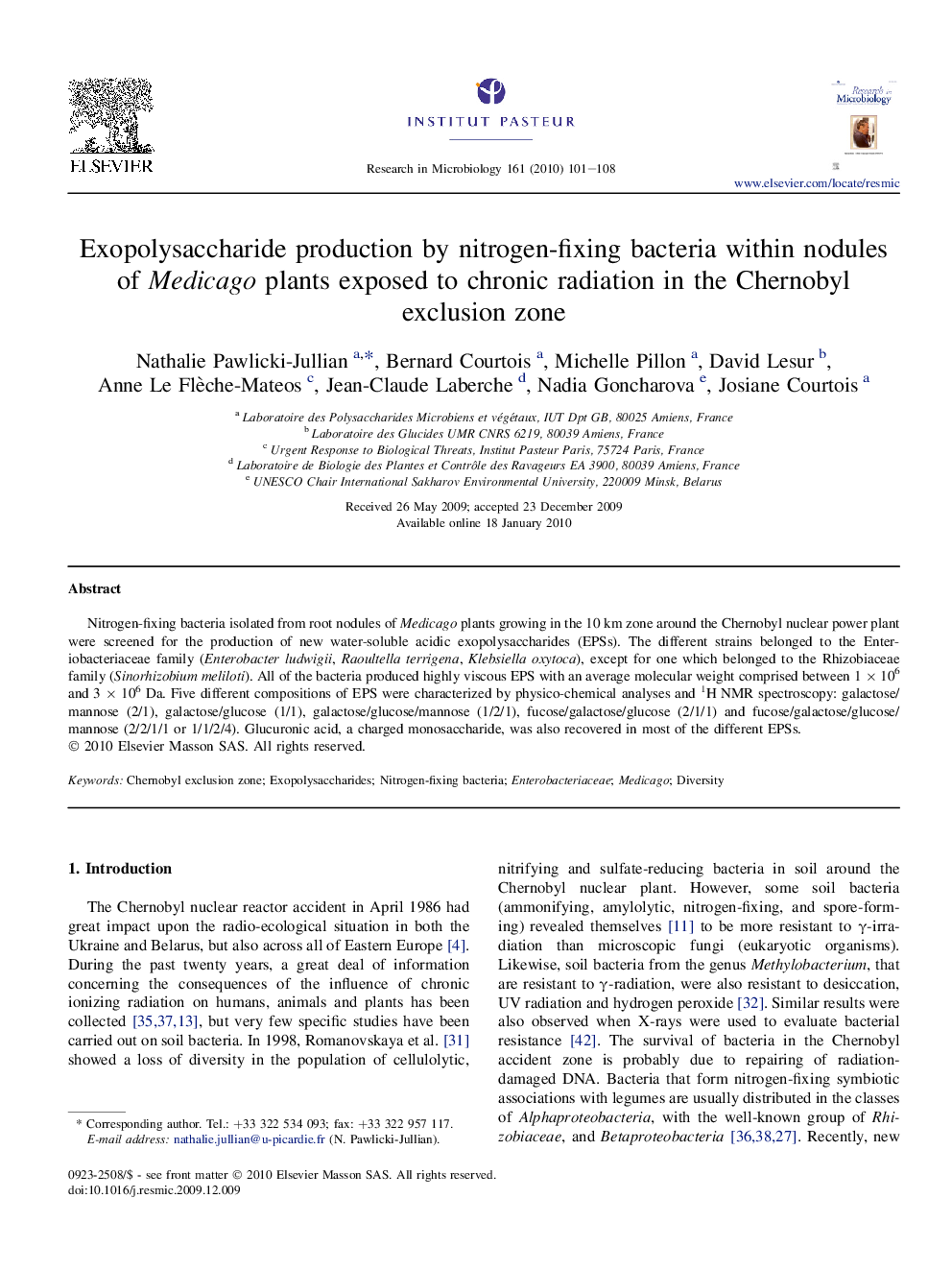| Article ID | Journal | Published Year | Pages | File Type |
|---|---|---|---|---|
| 4358950 | Research in Microbiology | 2010 | 8 Pages |
Nitrogen-fixing bacteria isolated from root nodules of Medicago plants growing in the 10 km zone around the Chernobyl nuclear power plant were screened for the production of new water-soluble acidic exopolysaccharides (EPSs). The different strains belonged to the Enteriobacteriaceae family (Enterobacter ludwigii, Raoultella terrigena, Klebsiella oxytoca), except for one which belonged to the Rhizobiaceae family (Sinorhizobium meliloti). All of the bacteria produced highly viscous EPS with an average molecular weight comprised between 1 × 106 and 3 × 106 Da. Five different compositions of EPS were characterized by physico-chemical analyses and 1H NMR spectroscopy: galactose/mannose (2/1), galactose/glucose (1/1), galactose/glucose/mannose (1/2/1), fucose/galactose/glucose (2/1/1) and fucose/galactose/glucose/mannose (2/2/1/1 or 1/1/2/4). Glucuronic acid, a charged monosaccharide, was also recovered in most of the different EPSs.
